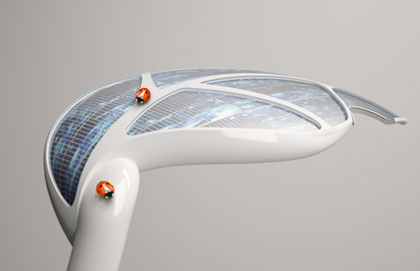
In recent years, with the continuous development of agricultural production technology and people’s increasing demand for increasing planting yield and shortening the planting cycle, artificial light sources are increasingly used in the field of plant growth, such as vegetables, fruits and flowers. Growing lighting uses.
Xu Zhigang, a professor at Nanjing Agricultural University, introduced that there are magical powers that regulate the photosynthesis, growth, morphogenesis, and metabolism of plants.
At present, the plant lighting technology is mainly applied in two aspects: the first is the supplementary irradiation of photosynthesis of plants when the amount of sunshine is small or the sunshine time is short; the second is the induced irradiation of the photoperiod and photomorphological structure of plants, according to different colors. The state of growth under the light source, looking for the "nutritional light" best suited for plant growth.
LED light source has obvious advantages
LED is a new type of illumination light source that has received extensive attention in recent years and has been accepted by the market. It has many characteristics different from other electric light sources. "According to a special research project of Nanjing Agricultural University, there are abundant types of LED wavelengths, and there are plenty of room for regulation, which is suitable for use in plant lighting." Xu Zhigang exampled, for example, the lighting control required for the cultivation of radish and green vegetables is not the same. With LED light sources, different wavelengths can be configured according to their preferences.
Fu Hung-hong, chief engineer of Beijing Tongfang Lansen Lighting Technology Co., Ltd. also pointed out that LED can provide high-power combined light sources with specific wavelengths, can configure the appropriate wavelength according to the properties of plants, improve the efficiency of light use, and promote early maturation and early flowering of plants. Early results.
According to Fu Xinghong, LED blue chips and red chips are configured in a reasonable proportion and are beneficial to the growth of plants. In addition to holly seedlings, there are conventional vegetables such as strawberries, tomatoes, peppers, eggplants, and cucumbers used in the agricultural industry. Suitable for planting throughout the year.
At the same time, the leaf size, chlorophyll or carotene, and vitamin content in the cultivation process of sprouts can all be achieved through light regulation. The nutritional value of vegetables is higher. Strawberries and tomatoes grown under the condition of LED light source, after being irradiated with special wavelength, the fruits of strawberry and tomato will be full, the content of sugar and vitamin C will increase obviously, and there will be no hollow phenomenon, which is better than the ordinary greenhouse fruit.

 In recent years, with the continuous development of agricultural production technology and people’s increasing demand for increasing planting yield and shortening the planting cycle, artificial light sources are increasingly used in the field of plant growth, such as vegetables, fruits and flowers. Growing lighting uses.
In recent years, with the continuous development of agricultural production technology and people’s increasing demand for increasing planting yield and shortening the planting cycle, artificial light sources are increasingly used in the field of plant growth, such as vegetables, fruits and flowers. Growing lighting uses. 
